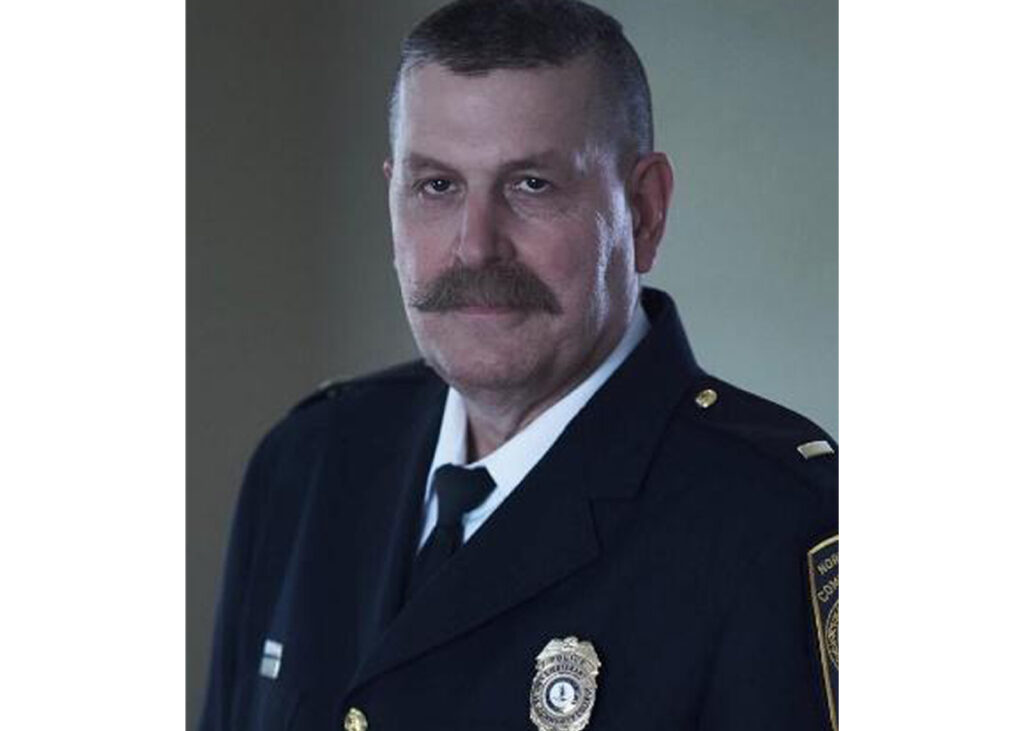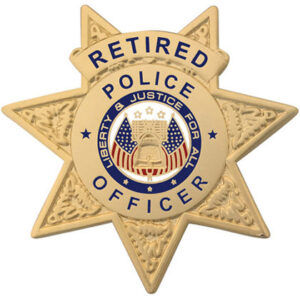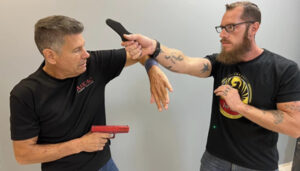It took me quite a while to become a firearms instructor. I’ve been gratified to provide officers with life-saving skills through teaching firearms mastery. Over the years, I trained other firearms instructors, taught active incident response tactics, and oversaw the introduction of patrol rifles and new handguns into my department. Upon retiring, I took over the firearms training program at a regional law enforcement academy where I’ve worked with outstanding professionals. The training plan we have developed is having positive effects on members of more than 50 law enforcement agencies.
After all these years, I have concluded that while teaching firearms proficiency is important, it is not the most important skillset we teach; we are teaching something far more important. In short, we are teaching essential life skills. The skills we teach on the range will help our trainees in their law enforcement careers and also help them live productive, satisfying and meaningful lives as spouses, parents, friends and community members. These critical skills include:
- Embrace servant leadership
- Work hard
- Make sacrifices for what’s truly important
- Listen actively
- Be willing to try new things
- Focus on what’s important
- Benefit from failure
- Deal with disappointment
- Adopt a proper measure of success
- Never give up
Let’s look at these skills more closely.
1. Embrace servant leadership
As firearms instructors, our primary goal is the progress of our students. We are simply means to an end and therefore must approach our mission with humility. On the range, we are not there to show the trainees how well we shoot; we are there to make them proficient. If, at times, a trainee does not respond to one instructor, that instructor must be prepared to step aside. A trainee’s failure to respond to one instructor does not mean that instructor is deficient; it only means another instructor may be able to help the trainee more. We cannot and should not make it about us.
2. Work hard
Often trainees going through an academy have received no or little training from their respective agencies before their first day on the range. In the first few days of training, they are trying to internalize firearms safety rules, range procedures, weapon manipulation, and marksmanship fundamentals. They are attempting operate in an environment with scores of moving parts. In such a demanding environment, there is no time and can be no time for mental lapses. This required continuous concentration becomes even more difficult when training days last 8-10 hours and continue on successive days. Success cannot be achieved without pacing oneself and making a commitment to hard work.
3. Make sacrifices for what’s important
One can learn what goals are important to a person by looking at what he or she is willing to sacrifice to obtain them. Instructors tell basic recruits to practice drawing and dry fire at home during initial training. For young recruits, this may mean foregoing time with social media to practice firearms skills. Similarly, recruits completing basic firearms are told to practice frequently because firearms skills are perishable. In light of the fact that young people are spending up to 9 hours a day on social media, there can be no doubt there is adequate time to achieve this goal; the question is whether it is important enough to trainees to sacrifice time spent in another activity.
4. Listen actively
Stephen R. Covey, author of The 7 Habits of Highly Effective People, (see The 7 Habits of Highly Effective People – Wikipedia) states that many people do not listen with the intent to understand; they listen with an intent to reply. The importance of listening is crucial for both instructors and trainees. Instructors must listen to what trainees are telling them, such as concerns about their safety and ability to succeed on the range. Also, instructors must “listen” to their trainees unspoken/non-verbal communications. Failure to do so will limit the information they need to guide their students and consequently reduce their effectiveness as instructors. Trainees must also listen to their instructors who should be explaining why they are being asked to employ a particular stance or grip. It is easier to execute instructions when one understands the reasons behind them.
Be willing to try new things
Often recruits arrive at the range having received some prior instruction, both formal (such as in the military) and/or informal (such as from friends and family). On many occasions, recruits will refuse to try a new stance or grip or weapon presentation because that’s the way they leaned it and because stability is comfortable. Instructors need to impress upon these shooters that what is comfortable to them notwithstanding, tactical necessities may require them to have multiple tools in their toolbelt. Change (i.e., innovation) is difficult and often uncomfortable but necessary if a trainee wants to become truly proficient and not just shoot good scores against static targets. Quite simply, we are telling the trainees to focus on both short- and long-term goals.
Focus on what’s important
The last sentence above leads to the necessity of trainees learning that passing qualification scores, while an immediate priority, is not what firearms training is about. Instead, the training is intended to develop skills that are useful in real-world situations; hitting static and even turning targets does not mimic real world combat. Instructors must ensure their charges understand what’s truly important.
Benefit from failure
Someone once told me “You don’t know how good you are until you fail.” Failure can play a positive role in training because it tells us where improvement is needed and provides a metric of progress. However, trainees seldom recognize failure generates positive results. Instructors ensure trainees keep their eyes on the prize.
Deal with disappointment
We are a success-oriented society. In general, trainees (and most people) do not readily recognize and embrace the positive benefits of failure. Instead, trainees feel under pressure to obtain passing qualification scores lest they fail to graduate from the academy. Therefore, when trainees fail a course of fire, they tend to become frustrated and dwell on the issue. This backward focus prevents them from visualizing and executing corrective actions moving forward. Firearms instructors can help their charges overcome disappointments with compassion and empathy. We tell our struggling trainees that it’s easy to be positive when things are going your way; however, real character is reflected by how a person rises to the occasion when things aren’t quite so rosy.
Adopt a proper metric of success
It is discouraging for struggling shooters to see colleagues on either side of them shooting well. They will compare themselves to more proficient shooters and become hyper-critical and discouraged with themselves. Instructors remind the trainees, especially new shooters, that people progress at different rates since skills, physical prowess, hand strength, hand-eye coordination, etc. are not uniformly distributed across they population. Trainees are told not to compare themselves to their colleagues who may have had extensive prior training or just be naturals; instead they need to compare themselves with where they were yesterday or the day before.
Never give up
The authors of The Coddling of the American Mind (www.thecoddling.com/reviews) decry shifts in culture that abandon standards and sanctify the inerrancy of one’s feelings. They contend current culture has failed the rising generation by trying to prepare the road (of life) for the child instead of preparing the child for the road. As a result, we have raised a generation of self-indulgent victims who lack resilience and a sense of personal accountability. It is incumbent upon instructors to instill in their trainees a sense that they can develop firearms proficiency by working hard, remaining coachable, trusting in their instructors, and exhibiting the characteristics listed above. Just like they will learn on the street, survival and progress are based on never tapping out.
A call to action
Initial firearms training is not only an essential building block for a successful career in law enforcement; it is so much more. Capable and attuned firearms instructors can help ensure their trainees depart the range prepared for the job and prepared for life in general. Joining the International Association of Law Enforcement Firearms Instructors (www.ialefi.com) is a good start. Stephen Covey’s book cited above contains additional advice to make us better prepared to fulfill our firearms-related duties. Finally, not taking ourselves too seriously and remembering we are there to serve our recruits will allow us to be the kinds of mentors remembered with gratitude and fondness for years to come.
Deputy John M. Weinstein
Lead Firearms Instructor
Rappahannock Regional Criminal Justice Academy
Fredericksburg, VA
Jweinstein0602@gmail.com
571-422-9928




